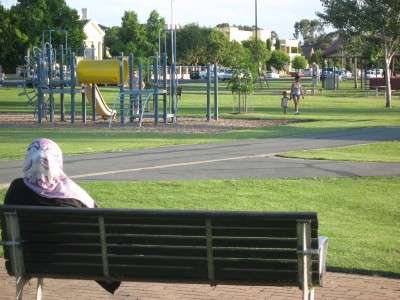Recent migrants content with Australian way of life

Most Australians support multiculturalism and recent migrants are positive about life here, despite occasional pockets of community dissatisfaction, according to the latest Mapping Social Cohesion Research released today.
Two new reports – the Recent Arrivals Survey and the Local Area Survey – written by Monash University's Professor Andrew Markus and produced by the Scanlon Foundation, build on the Foundation's annual Mapping Social Cohesion Research. It is Australia's largest study of social cohesion, attitudes to immigration and cultural diversity.
The reports provide the first detailed findings in the last decade on recent immigrant experience of Australia – and the first detailed research into social cohesion in specific local areas outside Sydney and Melbourne.
The Recent Arrivals survey of 2300 respondents focused on skilled and highly educated migrants who arrived between 1990 and 2010, with particular interest in the nature of contact with former home countries, and engagement with Australian society and identity.
Most – 81 per cent – were satisfied with life here. However about four out of 10 immigrants of non-English speaking background arriving between 2000 and 2010 reported relatively high levels of discrimination on the basis of 'skin colour, ethnic origin or religion'. This is more than double the national average.
Professor Markus said the immigrant experience had been transformed by the communication revolution brought about by low-cost mobile phones and the internet.
"Some seven out of 10 recent migrants are in frequent contact with overseas relatives and friends and close to 45 per cent of migrants from a number of Asian countries visit their former home countries at least once a year," Professor Markus said.
"However, this does not necessarily result in disengagement from Australian society."
Like most other Australians, immigrants tend to embrace multiple identities: six out of 10 considered themselves as 'world citizens' as well as Australians, and also identified with their country of birth. Those from India or Sri Lanka were most likely to identify as an Australian, and those from New Zealand least likely.
The local surveys were conducted in two urban regions, Logan in Brisbane and Mirrabooka in Perth, and three regional areas – Murray Bridge in South Australia, Shepparton in Victoria and the Atherton Tablelands in Queensland. All are characterised by relatively high socio-economic disadvantage.
The Atherton Tablelands residents were most positive about life in their neighbourhood, with 75 per cent agreeing multiculturalism had been good for Australia. However, 59 per cent said the current immigration intake was too high.
Findings varied in Logan and Mirrabooka, two areas of immigrant concentration, but safety concerns were prominent in both, with more than 65 per cent – double the national average – saying they felt unsafe on the streets at night.
Professor Markus said that, overall, Australia remained a socially cohesive nation – and the immigration program, which prioritises immigrants with high levels of education and with skills in demand, is a world leader.
Provided by Monash University


















